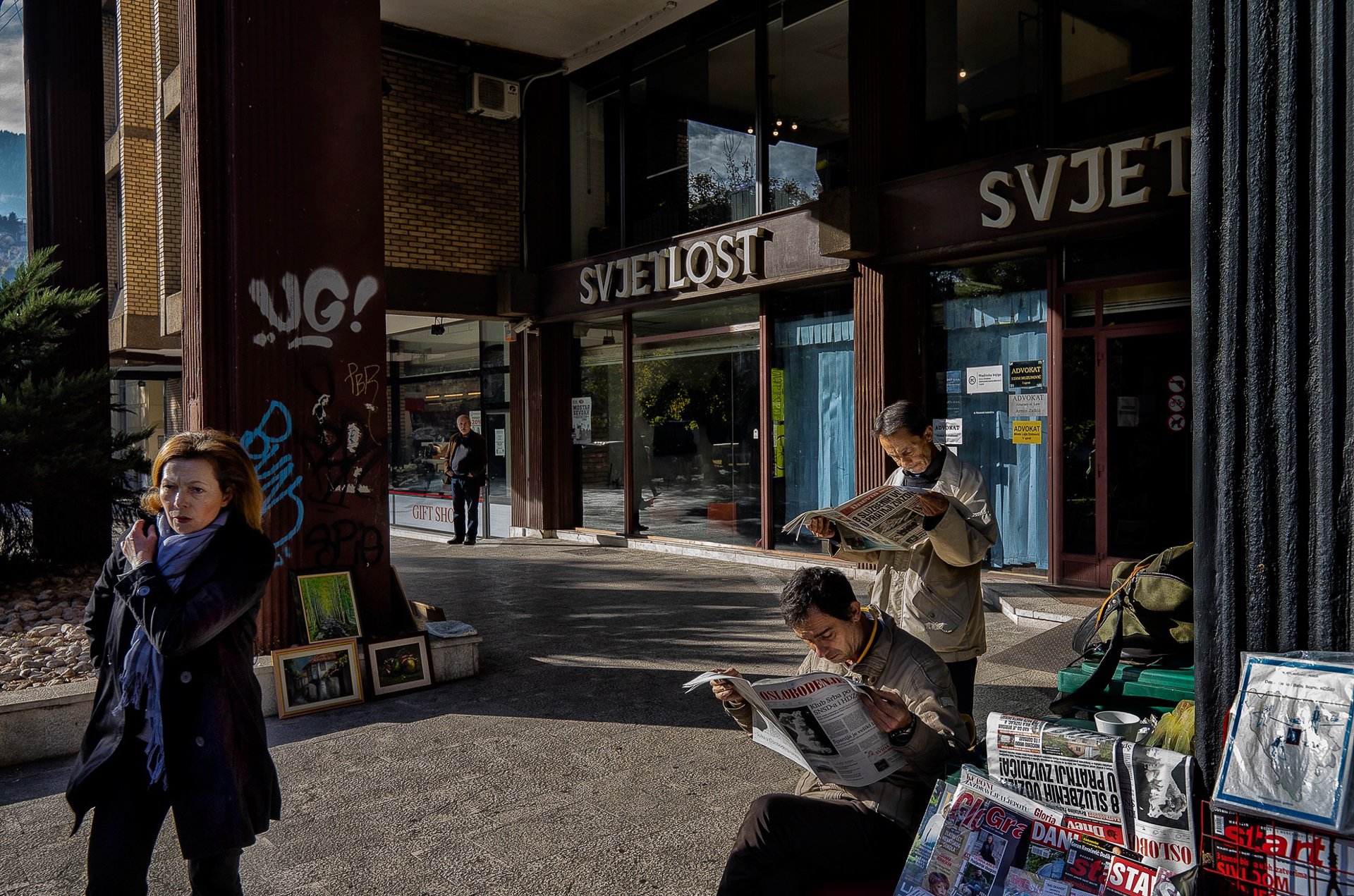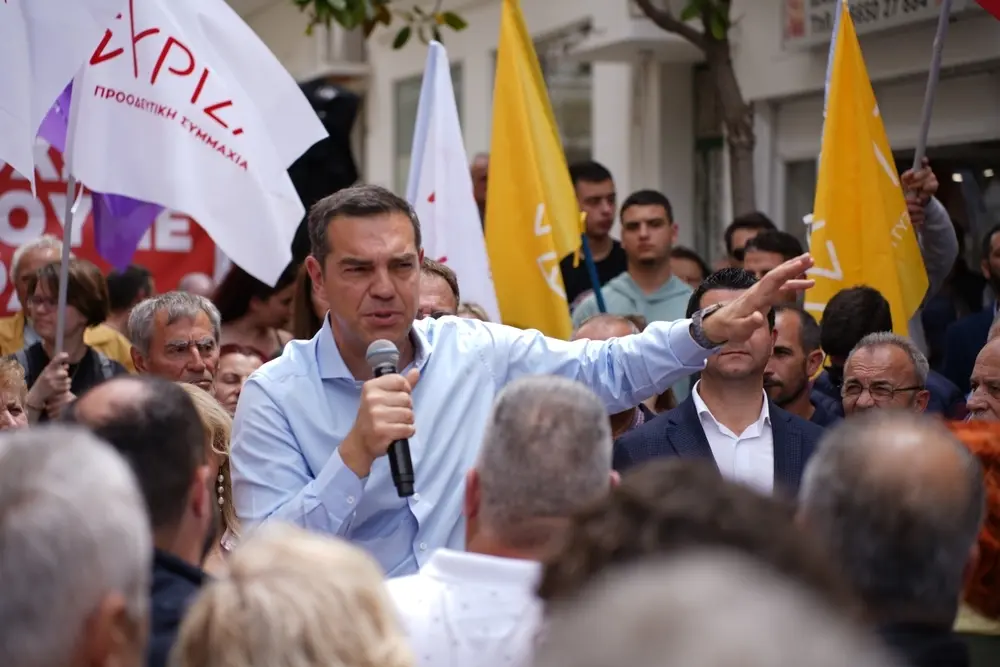Is participation a possible way out of the constitutional conundrum?
It is now clear that constitutional reform in Bosnia and Herzegovina is as necessary as it is difficult. A possible solution could come from participatory constitutionalism

Is-participation-a-possible-way-out-of-the-constitutional-conundrum
Sarajevo - © Maurizio Gjivovich
(Originally published 22.11.2021 by Oslobođenje )
Reforming the irreformable is the constitutional conundrum of the Dayton regime. Clearly, all proposals that have been put forward until now for over 25 years have failed to produce a significant change.
The problem is well known. It was already the Constitutional Court in its “constituent peoples” ruling in 2000 that made clear that a reform of the Dayton constitution is unavoidable in order to implement the principles that lay the foundations of the same constitution, namely the achievement of a society based on the equality of citizens.
The Venice Commission opinion in 2005 made it even clearer: the Dayton constitution is not sustainable, as it contradicts the foundations of a workable State, but to amend it is extremely difficult, as it is based on consensus among the representatives of the three constituent peoples. How to ask the main beneficiaries of ethnic entrepreneurship to move away from such a system, after having provided them with the ignition key of each possible reform? Such contradictions dramatically emerged in the Sejdić and Finci ruling of the European Court of Human Rights, which essentially found the institutional structure of the country discriminatory, as it limits (political) rights of all those not willing or able to affiliate with a constituent people or not meeting a combination of requirements of ethnic origin and place of residence. A long list of subsequent events, rulings, statements, positionings of the international community have further reinforced the prevailing feeling that the constitutional and institutional reform in the country is indispensable and impossible at the same time. Reforming the irreformable is the constitutional conundrum of the Dayton regime.
Calls for participation
Clearly, all proposals that have been put forward until now for over 25 years have failed to produce a significant change. Even those imposed by means of the Bonn powers of the High Representative, while legally broad, face their inherent limits as they lack representativeness and have short roots in the country’s society. There is a lot of rhetoric on the local ownership of the reform process, but this remains largely a lip service. Does this mean that there is no alternative but continuing as before?
Probably not, having in mind the most recent developments comparative constitutional law is offering, especially what cold be labelled ‘participatory constitutionalism’.
In the democratic world, the last couple of decades have faced tremendous changes, which slowly star to be reflected – albeit to a still limited extent – in constitution making and amending processes and procedures
In the democratic world, the last couple of decades have faced tremendous changes, which slowly star to be reflected – albeit to a still limited extent – in constitution making and amending processes and procedures. Mutatis mutandis, a conundrum similar to the irreformability of the Dayton constitution is to be noted also between representative and direct democracy, both showing their limits in addressing the challenges of a pluralistic society. The growing number of people, their better education and the resulting growth of the will to actively participate has made the traditional forms of representative and direct democracy unsatisfactory to an ever larger number of people. Elected assemblies are perceived as less and less representative and, in fact, they were conceived of at a time when a very small number of persons were allowed to turn to the ballots and in which assemblies served as platforms to reach compromises between a small elite of aristocrats and the bourgeoisie. At the same time, direct democratic tools such as referenda and popular initiatives prove to be rudimental instruments, often in the hands of mobilized minorities, and greatly unfit to regulate increasingly complex issues, ones which often require deep specialized knowledge and that can rarely be reduced to a “yes” or a “no”. Disaffection with politics, the decreasing role of political parties, increasingly recurring protests, and several other symptoms of popular discontent vis-à-vis the political process are, therefore, the outcome of structural and systemic factors rather than of the lower quality of political elites.
This calls for institutions and procedures to become ever more complex and sophisticated, granting efficiency while not compromising on democratic principles, helping societies to become less conflictive than a permanent confrontation between occasional and structural majorities and minorities make them.
A participatory way out?
In order to overcome some of the structural deficits of classical decision-making, in recent years several spontaneous practices have been initiated, commonly classified as participatory (sometimes also deliberative or associative) democracy. The common traits to the many different forms of participatory democracy are on the one hand that it does not replace the political decision-making but supports it, preparing the final deliberation, and on the other, that the various participatory bodies do not follow the logic of majority but rather that of consensus. If variably representative groups prepare a decision in a cooperative way, outside of political daily conflict, the proposals have a high degree of legitimacy and a high chance to be supported in the political decision-making, as they offer a solution and prevent dissent after the decision.
Experiments of this kind are being extended from the local level, where they have understandably been started, to the constitutional domain. And this opens extremely interesting avenues also to the prospective reform of the constitution of BiH.
There are already a number of possible sources of inspiration to design a process that could lead to proposals for reform and the procedure to support it. Constitutions from about 25 countries in the world have included participatory processes for their own amendment, and also the EU treaties after Lisbon are now to be reformed by means of a participatory process (Convention). Also constitutions of subnational entities present many interesting examples of deliberative bodies of that kind.
If both top down and classical bottom up have not worked so far, it might be the time to consider participation as a way out of the constitutional conundrum for BiH.
The Author
Francesco Palermo is professor of comparative constitutional law, University of Verona and head of the Institute for Comparative Federalism, Eurac Research in Bolzano/Bozen. Inter alia, he has been senior legal adviser to the OSCE High Commissioner on national minorities and member and president of the Council of Europe’s Advisory Committee on the Framework Convention for the Protection of National Minorities, is constitutional adviser to the Congress of local and Regional Authorities and member of the Scientific Committee of the EU’s Fundamental Rights Agency. CV at http://www.eurac.edu/fpalermo
This material is published in the context of the project "Bosnia and Herzegovina, the Constitution and the EU accession. An academic platform for discussing the options" supported by the Central European Initiative (CEI). CEI is in no way responsible for the information or views expressed within the framework of the project. The responsibility for the contents lies solely with OBC Transeuropa.
Featured articles
Is participation a possible way out of the constitutional conundrum?
It is now clear that constitutional reform in Bosnia and Herzegovina is as necessary as it is difficult. A possible solution could come from participatory constitutionalism

Is-participation-a-possible-way-out-of-the-constitutional-conundrum
Sarajevo - © Maurizio Gjivovich
(Originally published 22.11.2021 by Oslobođenje )
Reforming the irreformable is the constitutional conundrum of the Dayton regime. Clearly, all proposals that have been put forward until now for over 25 years have failed to produce a significant change.
The problem is well known. It was already the Constitutional Court in its “constituent peoples” ruling in 2000 that made clear that a reform of the Dayton constitution is unavoidable in order to implement the principles that lay the foundations of the same constitution, namely the achievement of a society based on the equality of citizens.
The Venice Commission opinion in 2005 made it even clearer: the Dayton constitution is not sustainable, as it contradicts the foundations of a workable State, but to amend it is extremely difficult, as it is based on consensus among the representatives of the three constituent peoples. How to ask the main beneficiaries of ethnic entrepreneurship to move away from such a system, after having provided them with the ignition key of each possible reform? Such contradictions dramatically emerged in the Sejdić and Finci ruling of the European Court of Human Rights, which essentially found the institutional structure of the country discriminatory, as it limits (political) rights of all those not willing or able to affiliate with a constituent people or not meeting a combination of requirements of ethnic origin and place of residence. A long list of subsequent events, rulings, statements, positionings of the international community have further reinforced the prevailing feeling that the constitutional and institutional reform in the country is indispensable and impossible at the same time. Reforming the irreformable is the constitutional conundrum of the Dayton regime.
Calls for participation
Clearly, all proposals that have been put forward until now for over 25 years have failed to produce a significant change. Even those imposed by means of the Bonn powers of the High Representative, while legally broad, face their inherent limits as they lack representativeness and have short roots in the country’s society. There is a lot of rhetoric on the local ownership of the reform process, but this remains largely a lip service. Does this mean that there is no alternative but continuing as before?
Probably not, having in mind the most recent developments comparative constitutional law is offering, especially what cold be labelled ‘participatory constitutionalism’.
In the democratic world, the last couple of decades have faced tremendous changes, which slowly star to be reflected – albeit to a still limited extent – in constitution making and amending processes and procedures
In the democratic world, the last couple of decades have faced tremendous changes, which slowly star to be reflected – albeit to a still limited extent – in constitution making and amending processes and procedures. Mutatis mutandis, a conundrum similar to the irreformability of the Dayton constitution is to be noted also between representative and direct democracy, both showing their limits in addressing the challenges of a pluralistic society. The growing number of people, their better education and the resulting growth of the will to actively participate has made the traditional forms of representative and direct democracy unsatisfactory to an ever larger number of people. Elected assemblies are perceived as less and less representative and, in fact, they were conceived of at a time when a very small number of persons were allowed to turn to the ballots and in which assemblies served as platforms to reach compromises between a small elite of aristocrats and the bourgeoisie. At the same time, direct democratic tools such as referenda and popular initiatives prove to be rudimental instruments, often in the hands of mobilized minorities, and greatly unfit to regulate increasingly complex issues, ones which often require deep specialized knowledge and that can rarely be reduced to a “yes” or a “no”. Disaffection with politics, the decreasing role of political parties, increasingly recurring protests, and several other symptoms of popular discontent vis-à-vis the political process are, therefore, the outcome of structural and systemic factors rather than of the lower quality of political elites.
This calls for institutions and procedures to become ever more complex and sophisticated, granting efficiency while not compromising on democratic principles, helping societies to become less conflictive than a permanent confrontation between occasional and structural majorities and minorities make them.
A participatory way out?
In order to overcome some of the structural deficits of classical decision-making, in recent years several spontaneous practices have been initiated, commonly classified as participatory (sometimes also deliberative or associative) democracy. The common traits to the many different forms of participatory democracy are on the one hand that it does not replace the political decision-making but supports it, preparing the final deliberation, and on the other, that the various participatory bodies do not follow the logic of majority but rather that of consensus. If variably representative groups prepare a decision in a cooperative way, outside of political daily conflict, the proposals have a high degree of legitimacy and a high chance to be supported in the political decision-making, as they offer a solution and prevent dissent after the decision.
Experiments of this kind are being extended from the local level, where they have understandably been started, to the constitutional domain. And this opens extremely interesting avenues also to the prospective reform of the constitution of BiH.
There are already a number of possible sources of inspiration to design a process that could lead to proposals for reform and the procedure to support it. Constitutions from about 25 countries in the world have included participatory processes for their own amendment, and also the EU treaties after Lisbon are now to be reformed by means of a participatory process (Convention). Also constitutions of subnational entities present many interesting examples of deliberative bodies of that kind.
If both top down and classical bottom up have not worked so far, it might be the time to consider participation as a way out of the constitutional conundrum for BiH.
The Author
Francesco Palermo is professor of comparative constitutional law, University of Verona and head of the Institute for Comparative Federalism, Eurac Research in Bolzano/Bozen. Inter alia, he has been senior legal adviser to the OSCE High Commissioner on national minorities and member and president of the Council of Europe’s Advisory Committee on the Framework Convention for the Protection of National Minorities, is constitutional adviser to the Congress of local and Regional Authorities and member of the Scientific Committee of the EU’s Fundamental Rights Agency. CV at http://www.eurac.edu/fpalermo
This material is published in the context of the project "Bosnia and Herzegovina, the Constitution and the EU accession. An academic platform for discussing the options" supported by the Central European Initiative (CEI). CEI is in no way responsible for the information or views expressed within the framework of the project. The responsibility for the contents lies solely with OBC Transeuropa.










